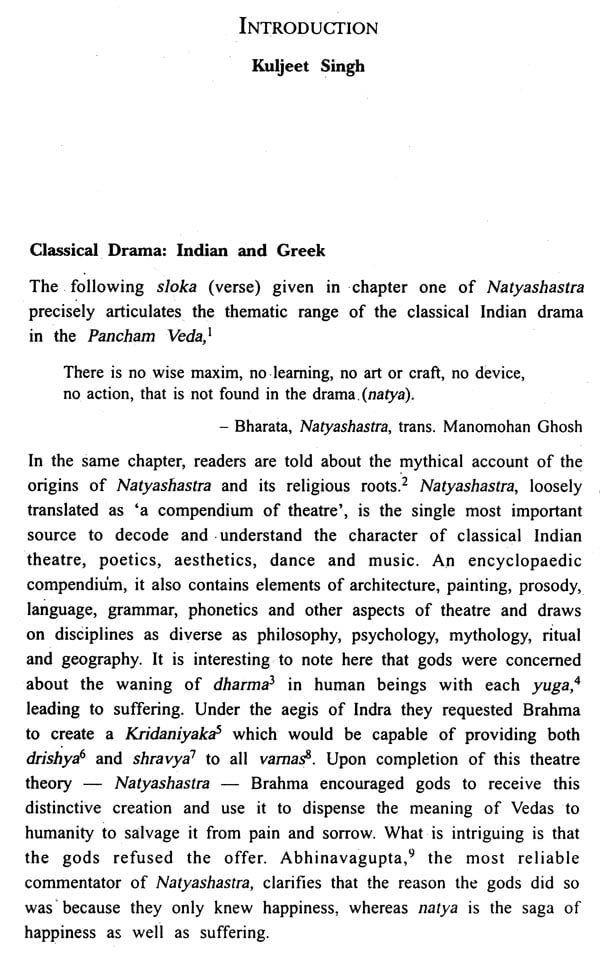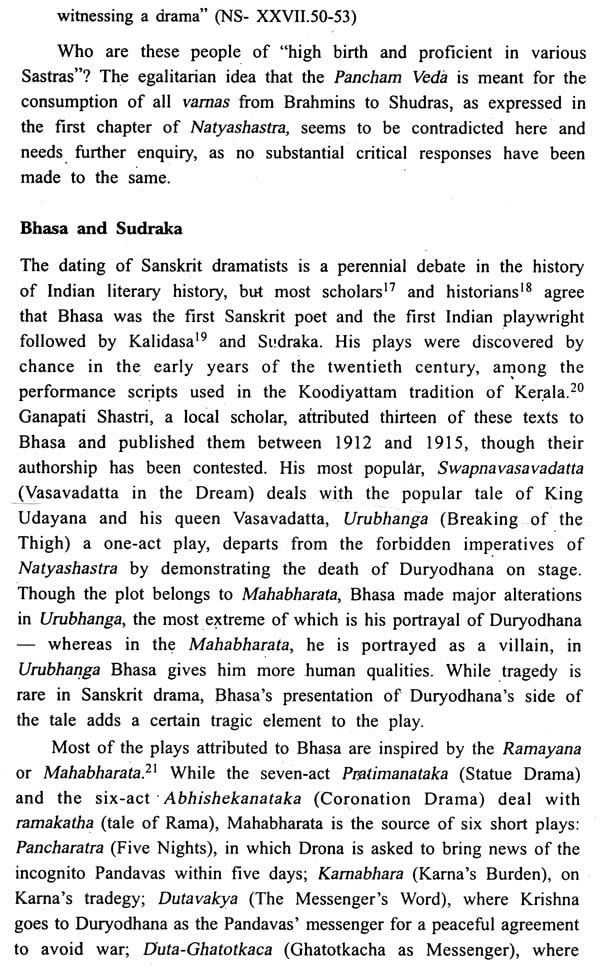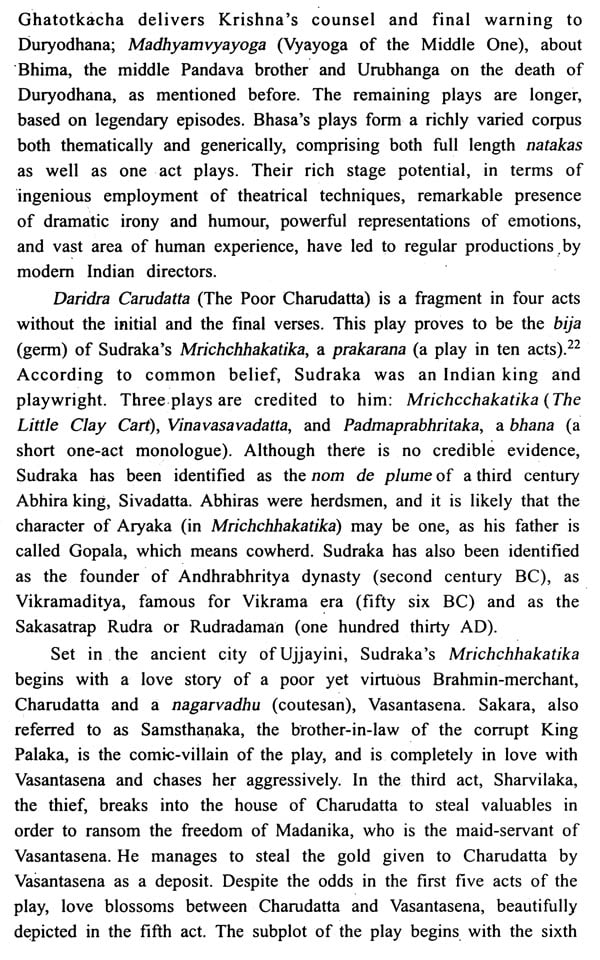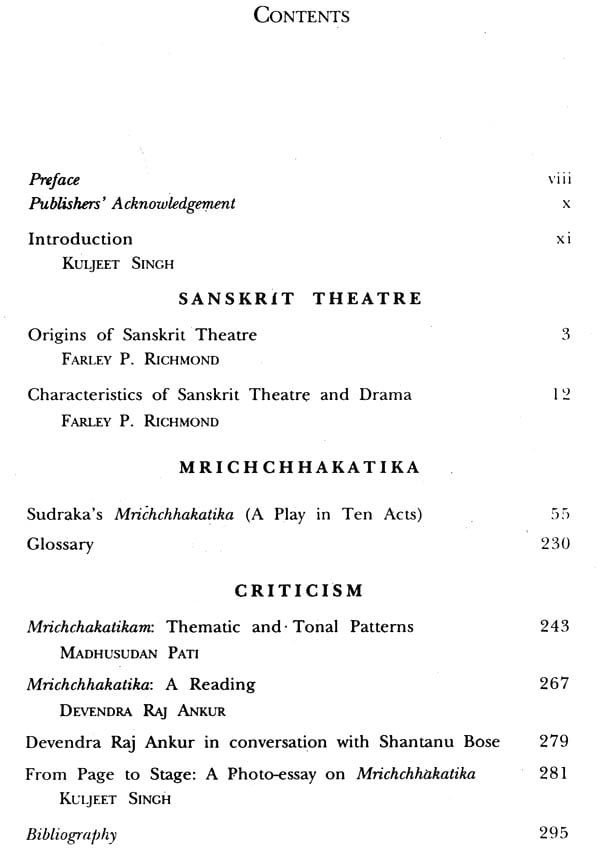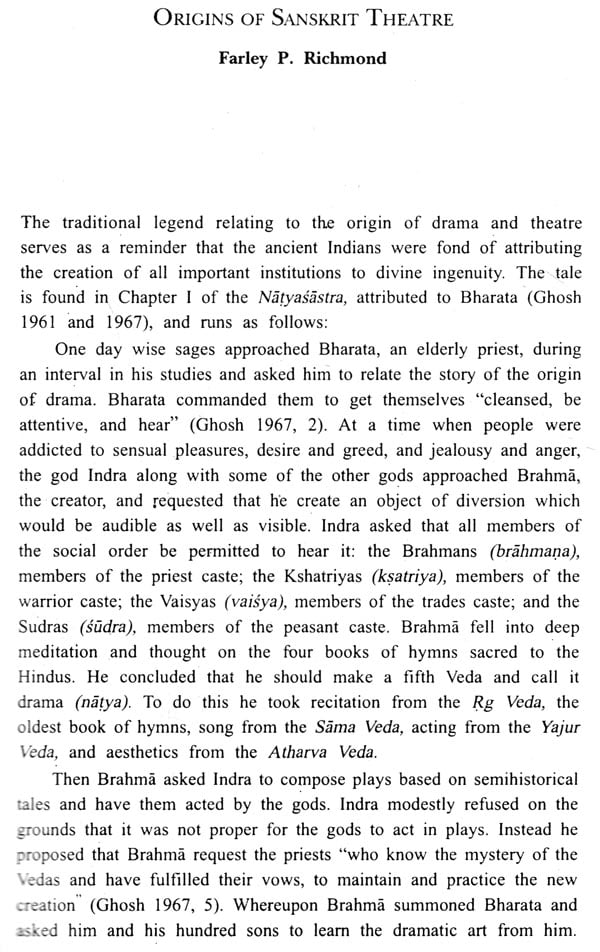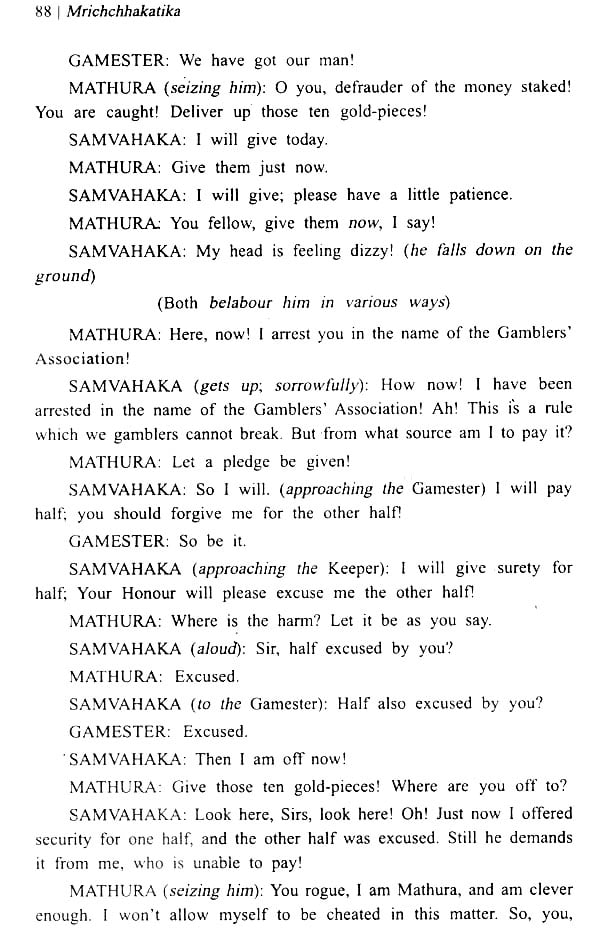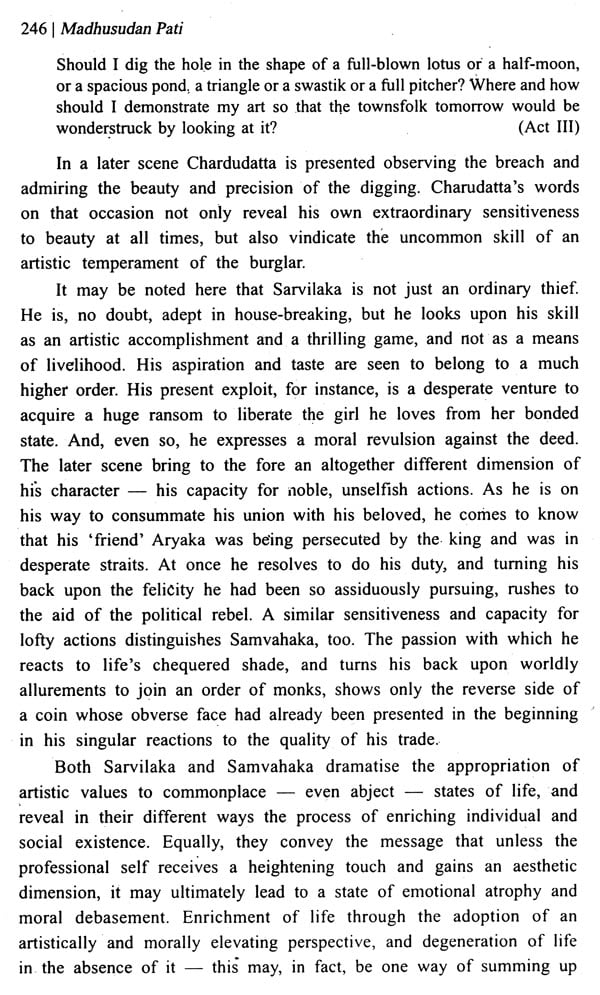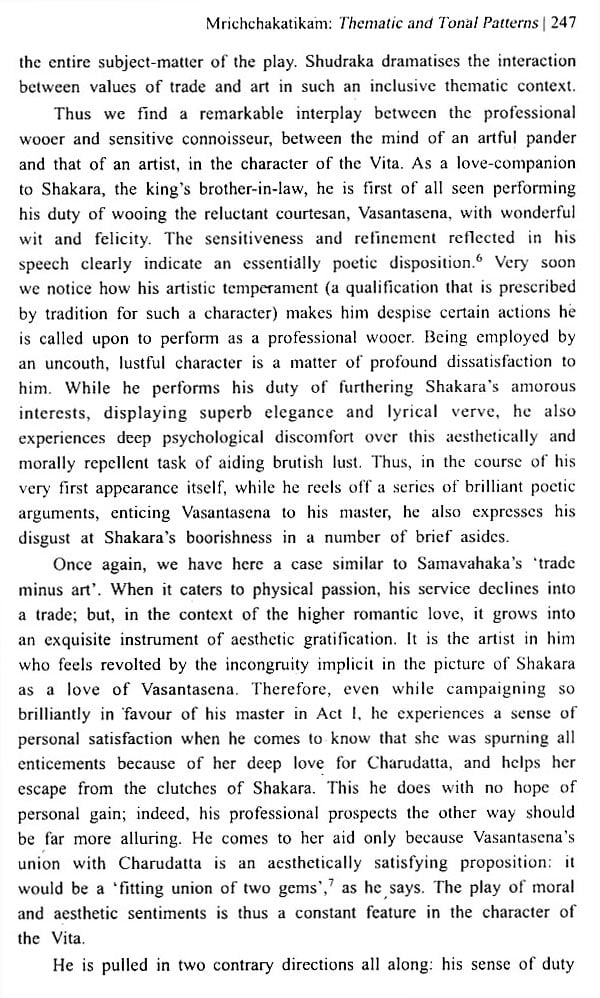
The Mrichchhakatika of Sudraka (With Introduction, Critical Essays and A Photo Essay
Book Specification
| Item Code: | NAT952 |
| Author: | M.R. Kale and Kuljeet Singh |
| Publisher: | Motilal Banarsidass Publishers Pvt. Ltd. |
| Language: | ENGLISH |
| Edition: | 2019 |
| ISBN: | 9788120840102 |
| Pages: | 298 |
| Cover: | PAPERBACK |
| Other Details | 8.50 X 5.50 inch |
| Weight | 300 gm |
Book Description
The Mrichchhakatika of Sudraka Translated by M.R. KALE Hailed as a Shakespearean play, written a few centuries before Shakespeare, Sudraka's Mrichchhakatika is one of the most signifi-cant Sanskrit dramas for more than a few reasons. Set in the ancient city of Ujjayani, Mrichchhakatika is "rife with romance, comedy, intrigue and a political subplot deteailing the overthrow of the city's despotic ruler by a shepherd, [and] is notable among extant Sanskrit dramas for its focus on a fictional scenario rather than on a classical tale or legend. Mrichchhakatika also departs from the traditions enumerated in the Natyashastra that specify that dramas should focus on the lives of the nobility and instead incorporates a large number of middle and lower caste characters who speak a wide range of Prakrit dialects." Much celebrated in the West because of its plot structure, following several successful nineteenth century translations and stage adaptations, Mrichchhakatika remains the prominent drama in Sanskrit widely translated, adapted and performed internationally.
This volume includes the text translated by M.R. Kale, along with relevant background essays and criticism, to enable the students of literature to understand long tradition of theatre in India on one hand; and on the other, its subsequent negotiations with the West, traversing, accommodating, negotiating and becoming what we call Modern Indian Drama, today.
KULJEEF SINGH teaches in the department of English, SGTB Khalsa College, University of Delhi. Known for his work on Campus Theatre, he spends his time between academics, theatre and films. His forthcoming work is Vak: A Glossary of Indian Literary Terms.
This critical edition on Sudraka's Mrichchhakatika or Mrichhakatika or Mrchhakatikam (variously spelled) was initially aimed at fifth semester undergraduate students of English Literature amidst the mayhem of recurrent changes in the courses of the University of Delhi. While I was planning to create a grid of contents for this critical edition, the guidelines for the newly implemented CBCS (Choice Based Credit System) were announced and this text was also prescribed for first semester English Honors students, which I think is a formidable one for the students coming from a school system like ours. Creating an edition which may suit the creative and intellectual faculties of the third year FYUP students and responding to the simplistic inquisitiveness of the first year students under one cover, remained the most arduous task. The acute sense to construct a text which can inform, enthuse and inspire led to multiple constructive changes, which I think will help the students holistically.
With a lot of syntactical concerns and readability factors in the available translation, I negotiated gently with the former and focussed majorly on the latter, trying to make the text more readable. I have removed parenthesis from it, wherever required, thus making it (as it looks to me now) lucid and comprehensible and provided edited notes from the annotated text by MR Kale, along with a few additional responses. In order to reach closer to the original while not being adept in Sanskrit, I have taken guidance from the available Hindi translations by Mohan Rakesh and Rangey Raghay. Having said this, the translation in English will not, in any way, provide the linguistic joy of the original in which Sanskrit and seven dialects of Prakrit were used, needless to mention the musicality and poetic quality of the play. Moreover, the fun of Comic elements the character of Sakar brings through lisping of "sh" in place of "s" could not be achieved in the English translation.
Though this edition underwent a long and detailed creative process, I would be glad to receive feedback from students and teachers to fill in its gaps, if any remain. For this volume, I am indebted to Prof. TS Satyanath for inspiration and suggestions; Prof. Indira Kaul for providing material and promising to contribute an essay in the revised edition; Prof. Devendra Raj Ankur for consenting to the use of his exhaustive essay; Saheb Kaur for translating the same from Hindi; Prof. KS Rajendran for providing photographs; National School of Drama for allowing us to use them; Simranjot for reading out the essays; Kanav Gupta for his critical responses; Menka, Shikha and Kanupriya for proof-reading it thoroughly. I am indebted to Motilal Banarasidass and Sachin Rastogi for publishing it.
**Contents and Sample Pages**
